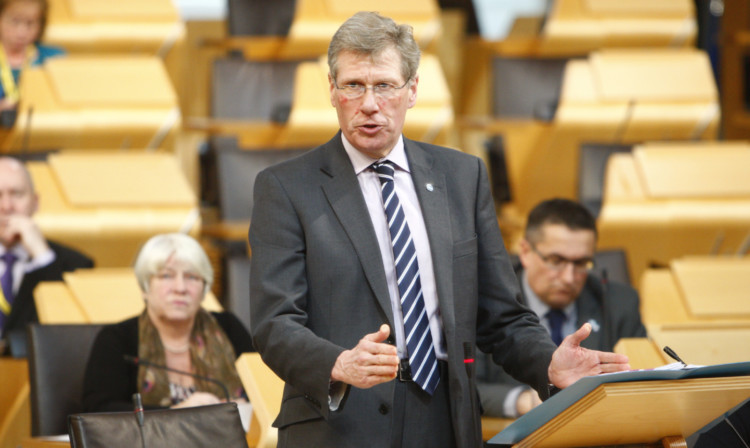A Scottish Government Bill to scrap corroboration has squeezed through to the next stage of parliamentary examination after ugly scenes in Holyrood.
Presiding Officer Tricia Marwick had to intervene while the concerns of legal experts and victims of serious sexual assault were caught up in a whirlwind of political party point scoring.
Justice Secretary Kenny MacAskill was slammed for suggesting those opposed to his policy only did so because they will vote No in the independence referendum.
Pro-independence Green MSPs voted for an amendment to take the abolition of corroboration out of the Criminal Justice Bill, as did ex-SNP member John Finnie.
Insiders said Mr Finnie was “fizzing” about Mr MacAskill’s tone in his closing speech.
The Justice Secretary said: “We know the Better Together campaign extends beyond the constitutional remit that also extends itself to dealing on other particular aspects.”
Conservative justice spokeswoman Margaret Mitchell, who had tabled the amendment, said: “In general, his remarks and misjudgement to suggest the opposition to these awful proposals was some kind of Better Together conspiracy merely proved just how concerned the cabinet secretary is about ensuring we have a criminal justice system which is fair for victims and accused persons alike.”
Her amendment was defeated by 64 votes to 61.
SNP MSP Christine Grahame, convener of Holyrood’s justice committee abstained, despite having expressed severe reservations about the policy.
The Bill will now be examined again by the justice committee before returning to the chamber, where it will have to pass another vote before it can become law.
Liberal Democrat justice spokeswoman Alison McInnes said: “In the face of unprecedented and principled opposition in parliament the justice secretary sank to casting unpleasant jibes and inappropriate slurs. Any fair minded nationalist would be ashamed by the justice secretary’s approach this evening.”
During the debate, Mr MacAskill had told MSPs they would be denying justice to victims if they fail to support the removal of corroboration.
He had previously tried to win over opposition members by setting up an expert group led by former High Court judge Lord Bonomy to further consider the key change before it is put in place, despite criticism from a variety of legal experts.
The plan to remove the provision is welcomed by police, victims’ groups and prosecutors, with some arguing its removal will make it easier to take cases of sexual assault and domestic abuse to court.
